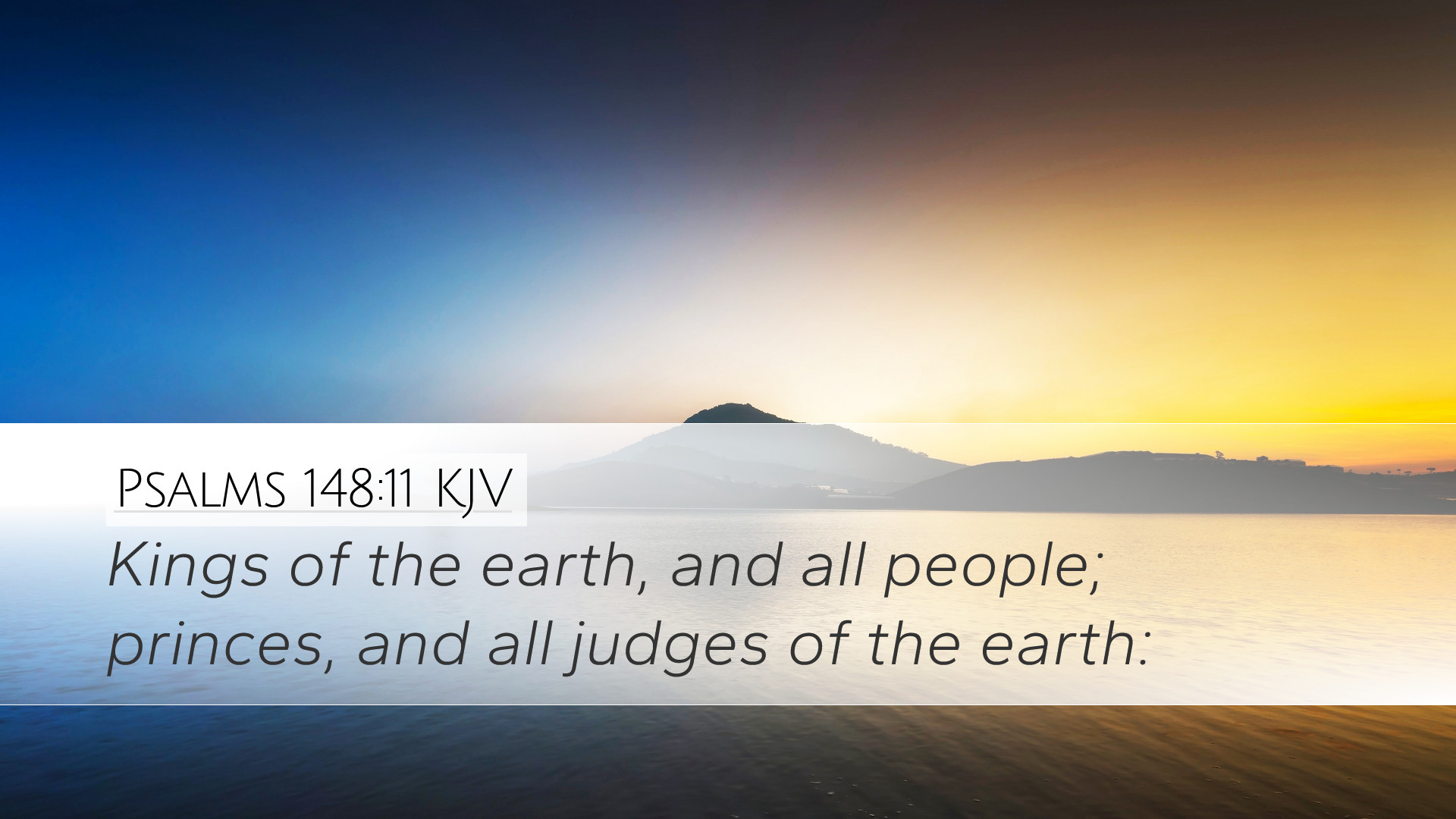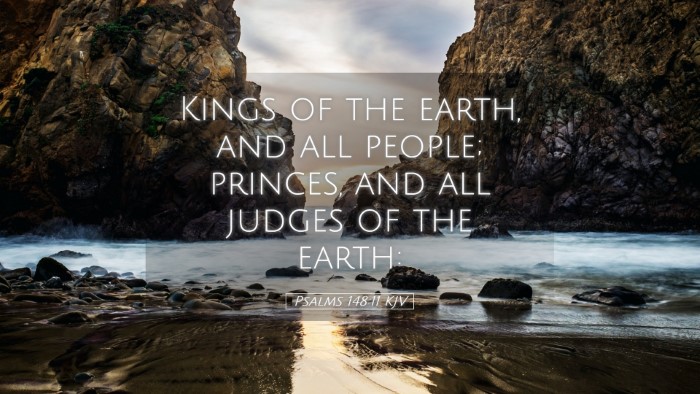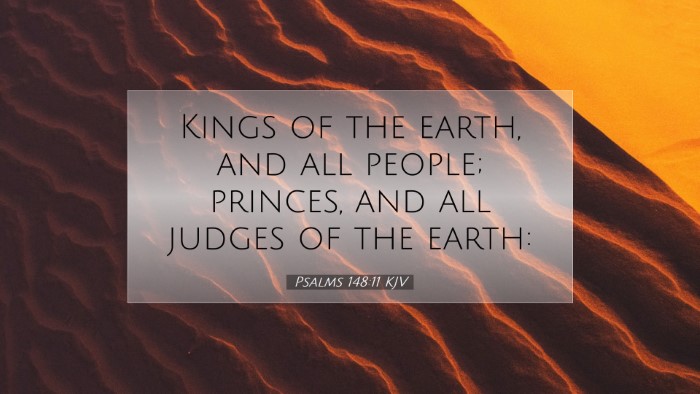Commentary on Psalms 148:11
This verse reads: "Kings of the earth, and all people; princes, and all judges of the earth;" (Psalms 148:11). It is a call to all rulers and authorities to join in the praise of the Lord. This psalm is part of a larger poetic framework that invites all creation to glorify God.
Overview of the Verse
Psalms 148 is situated within the concluding psalms, which celebrate creation and divine sovereignty. In this verse, the psalmist emphasizes the significance of earthly rulers participating in the worship of God. It implies that no one is above the call to honor God, highlighting a universal truth: all of creation and all societal strata are called to recognize God's majesty.
The Call to Rulers
The mention of "kings" and "judges" signifies the acknowledgment of authority as part of God’s created order. As Matthew Henry notes, "It is justly expected that those in high places should give him honor, that they may be as examples to those that are under them.” It calls forth an expectation of humility and responsibility among leaders to lead their people in a life of worship and tribute to the Creator.
Spiritual Implications
This call serves as a reminder that true authority is derived from God, and as such, all rulers ought to exhibit reverence towards Him. Albert Barnes highlights that "earthly monarchs, though they may seem great, are still subjects under the Almighty." This underscores that human authority is limited and should always align with divine commandments.
The Universality of Worship
The verse emphasizes the universality of worship. It is not only a specific segment of society that should glorify God but all people—regardless of their status or position. This sentiment resonates with Adam Clarke's comment that "the greatness of God should be a stimulus to the lowly as well as to the mighty." There are no exclusions in the call for worship; the scope extends to everyone.
Communal Praise
Psalms 148 is structured to show the collective participation of creation in praise. The mention of various categories of people indicates the communal aspect of worship. The psalmist envisions a scenario where every rank of society unites in homage to God, creating a powerful testimony of faith to the world.
Judges and Justice
The reference to "judges" emphasizes not just positions of authority, but also the responsibility they bear in maintaining justice and righteousness. As leaders uphold God’s law, they contribute to a just society that reflects God’s character. According to Henry, "Judges must be men of faith and integrity, exemplifying holiness in their judgments." Their role is not only of authority but also of moral obligation to lead with equity.
Response to God's Majesty
The inclusion of all ranks serves as a response to God’s greatness. Each level of authority is a reflection of God’s order, and worship is an acknowledgment of that. Those in leadership should aspire to elevate God's truth in their governance and inspire their followers. Barnes underscores that “the highest honors of earth should bow before the Majesty of Heaven.” This understanding calls for humility in leadership, recognizing that true authority lies with God alone.
Conclusion
In summation, Psalms 148:11 is a profound reminder that God's sovereignty transcends all earthly powers. The verse serves both as an invitation and a challenge for leaders to proclaim God’s glory actively and humbly. It calls for a collective worship that is rooted in the acknowledgment of God as the ultimate authority over all creation. It invites pastors, students, theologians, and Bible scholars to reflect on their roles within their communities: to foster a spirit of worship that encompasses all levels of society, affirming that every individual has a part in glorifying their Creator.


